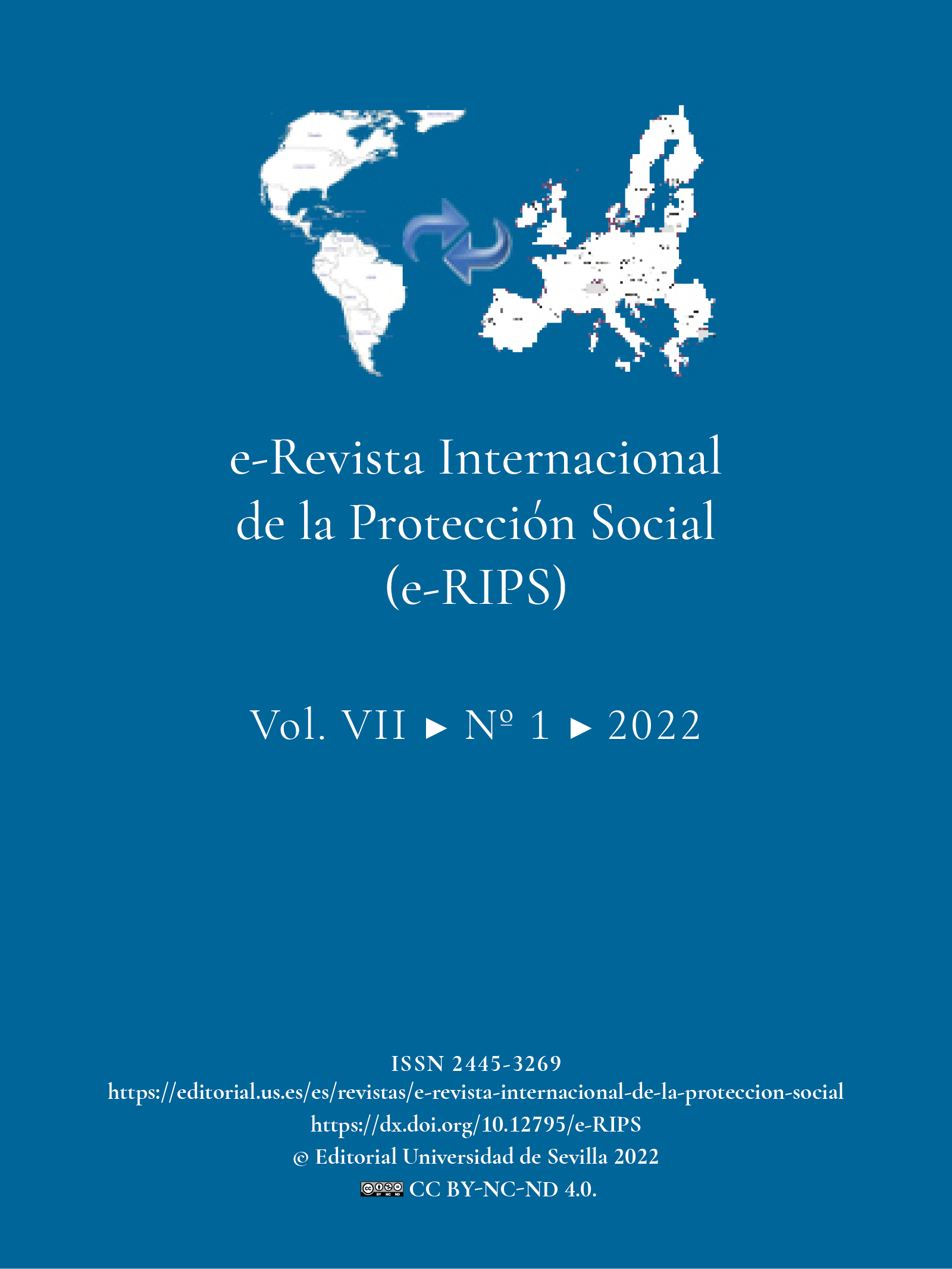The crisis of Social Protection of digital platform workers: brief comparison between Brazil and Spain
DOI:
https://doi.org/10.12795/e-RIPS.2022.i01.09Keywords:
Digital platforms, Labor Law and Social , Protection, Subordination, Dependency, Ibero-AmericanAbstract
This article analyzes the crisis in Labor Law and social protection in the face of work carried out on digital platforms. With a special focus on the Brazil and Spain situation, Brazilian legislation and court decisions on employment relationships between workers and digital platforms will be investigated, in comparison with legislation and decisions on the subject in Spain. The crisis in the concept of subordination and labor dependence will be highlighted, with emphasis on the profile of platform workers. At the end, the importance of a legal harmonization on the subject at a global level will be highlighted. It seeks to demonstrate the pertinence of creating an international governance system for digital work platforms, seeking alternative paths for a Labor Law that expands its protection perimeters.
Downloads
References
Aniorte, M.: Ámbito subjetivo del Régimen Especial de Trabajadores Autónomos, Aranzadi Editorial, Pamplona, 1996.
Consentino, C.: Direito do Trabalho, Tecnologias da Informação e da Comunicação: impactos nas relações individuais, sindicais e internacionais do trabalho, RTM, Belo Horizonte, 2018.
De Stefano, V.: “Labouris not a technology: Reasserting the Declaration of Philadelphia in times of plataform work and gig economy”, IusLabor, núm. 2, 2017.
Mella Méndez, L.: “La protección de los repartidores de plataformas tras el RD-ley 9/2021: ¿se está ante una verdadera presunción «iuris tantum» de laboralidad?”, Nueva Revista Española de Derecho del Trabajo, núm. 244, 2021, pp. 143-184.
Mendes, M.; Chaves Júnior, J.: “Subordinação estrutural-reticular: uma perspectiva sobre a segurança jurídica”, Revista do Tribunal Regional do Trabalho 3ª Região, vol. .46, num.76, 2007, pp. 197-218.
Miskulin, A; Bianchi, D.: “O descompasso entre a definição de trabalho “uberizado” e a realidade do trabalho dos motoristas de uber”, en O trabalho além do direito do trabalho, LTr, São Paulo, 2019.
Oliveira, M: Relação de emprego, dependência econômica & subordinação jurídica: revisitando os conceitos, Editora Juruá, Porto, 2019.
Oliveira, M.: A (Re)significação do critério da dependência econômica: Uma compreensão interdisciplinar do assalariamento em crítica à dogmática trabalhista [Tese apresentada ao Curso de Pós-Graduação], Universidade Federal do Paraná, 2011.
Sabino, A; Abílio, L.: “Uberização: o empreendedorismo como novo nome para a exploração”, Revista Jurídica Trabalho e Desenvolvimento Humano, Campinas, vol. 2, núm. 2, 2019, pp. 109-135.
Sierra Benítez, E. M.: “Trabajo decente y subordinación jurídica y económica en la era digital”, en Monereo Pérez, J. L.; Gorelli Hernández, J.; de Val Tena, Á. L. (dirs.): El trabajo decente, Comares, Granada, 2018, pp. 19-34.
Sierra Benítez, E. M.: “El tránsito de la dependencia industrial a la dependencia digital: ¿qué derecho del trabajo dependiente debemos construir para el siglo XXI?”, Revista Direito das Relações Sociais e Trabalhistas, vol. 6, núm. 1, 2020, pp. 64-91.
Teodoro, M.: “O trabalhador-consumidor no panóptico pós-moderno”, Revista da Faculdade Mineira de Direito, vol. 24, núm. 47, 2021, pp. 327-341.
Teodoro, M; Oliveira, M. P. S.: “O trabalho pelas plataformas digitais e a conformação do vínculo de emprego pela modalidade intermitente”, Revista Direito das Relações Sociais e Trabalhistas, vol. 6, núm. 1, 2020, pp. 155-177.
Vilhena, P. Relação de emprego: estrutura legal e supostos Saraiva, São Paulo, 1975.
Zipperer, A.: A multiterceirização e a subordinação jurídica. A intermediação de mão de obra a partir de plataformas digitais e a necessidade de tutela modular do Direito do Trabalho [Tese de Doutorado], Pontifícia Universidade Católica do Paraná (PUC-PR), 2018.
Published
How to Cite
Issue
Section
License
Authors being published in this journal agree to the following terms:
- Authors retain their copyright and they will guarantee to the journal the right of first publication of their work, which will be simultaneously subject to license recognition by Attribution-NonCommercial-ShareAlike (CC BY-NC-SA 4.0 DEED)
that allows others to share such work provided that the author’s name and his first publication in the e-International Review on Social Protection is stated. - Authors may take other non-exclusive distribution license agreements version of the published work (e.g. deposit in an institutional digital file or publication in a monographic volume) provided that the initial publication in this journal is stated.
- Authors are allowed and encouraged to disseminate their work via the Internet (e.g. in institutional digital files or on their website) prior to and during the submission process, which can lead to interesting exchanges and to increase citation of the published work.











